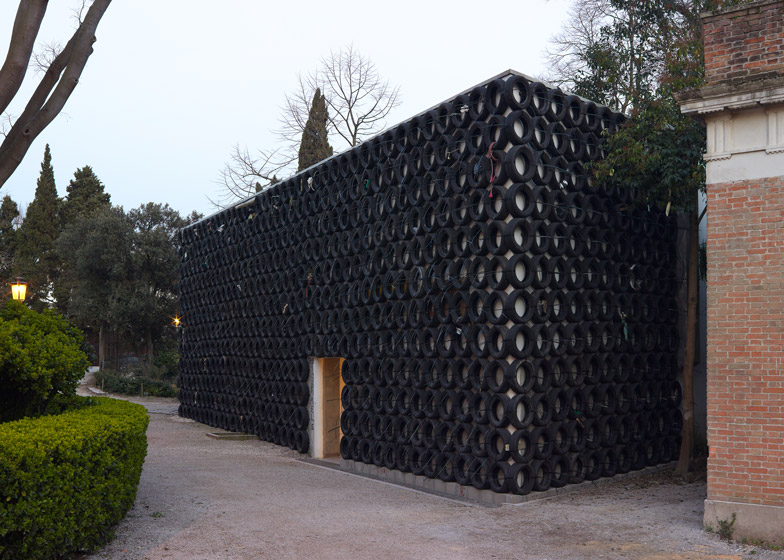Every other year, artists and architects from nations all over the world come together to celebrate contemporary art and design at the Venice Biennale. Nearly 100 countries take part in the exhibition, with 30 maintaining permanent pavilions in the Giardini park. This year, Israel’s pavilion makes a statement on the wastefulness of modern culture, hiding the structure behind a wall of used tires.
Artist Tsibi Geva put so-called ‘trash’ front and center for Israel’s contribution to the highly anticipated event. Not only is the facade of the building covered in over 1,000 highly conspicuous tires, the interior features found household objects packed into cages or displayed behind glass walls.
“The used tires, which are impregnated with a distinct odor, form an organized network of holes imbued with a protective potential, while simultaneously attesting to a state of danger, constituting a powerful material presence, and communicating a charged, urgent visual and political statement,” say the pavilion organizers.
“Upon entering the pavilion, the exterior installation is visible once again from the inside, together with an interior installation including paintings, sculptural objects, and found objects, abolishing hierarchical distinctions between artistic mediums and structures.”
The installations include items that represent broken remnants of what once was – elements from a cozy and comfortable home, now unwanted and considered to be without value. Obsolete technology is set up beside busted bed frames, pieces of old furniture and other things we put resources into creating, use for a little while and then call ‘junk.’


